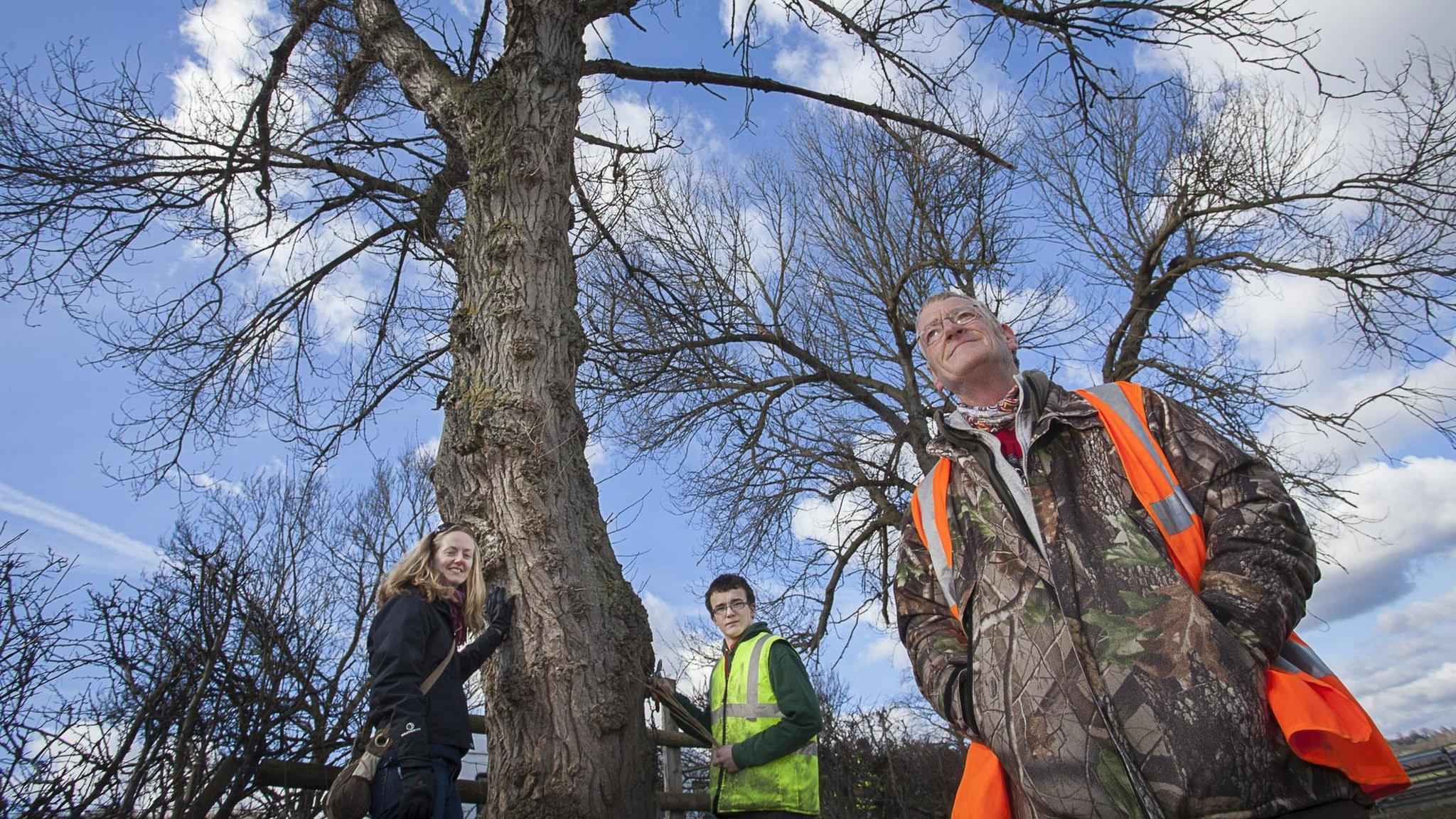Black poplar to feature alongside Bristol's new 'tiny forest'
- Published
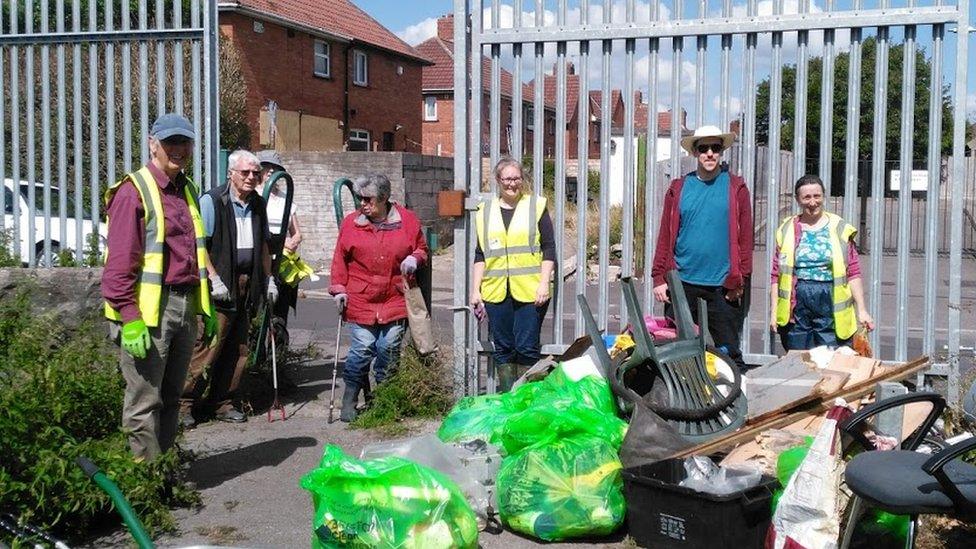
Volunteers from Sustainable Southmead have cleared fly-tipped items and rubbish from the neglected area
Britain's rarest native tree is being planted in an unloved city grassland to restore it as a community wildlife habitat.
The black poplar is in decline with only around 7,000 growing wild in Britain.
The rare hardwood, external will be placed near to a "tiny forest" being planted in an area the size of a small tennis court.
The plot in Southmead, Bristol, has been cleared of rubbish by a team of local volunteers.
Tiny forests are based on forest management methods developed in the 1970s in Japan, where many different species are planted closely together in urban areas.
The first "tiny forest" in the UK was planted in Witney, Oxfordshire, last March.
The small and dense woodland will feature 600 trees and bushes, is being planted off Doncaster Road and will be Bristol's first tiny forest.
It will include a community orchard and forest school and a mix of British native trees, including English oak, hornbeams, beech, lime trees, silver birches, spindle, hazel, and dogwood.
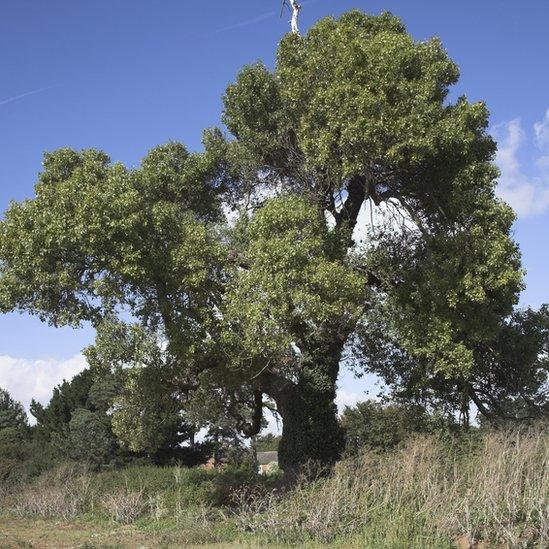
According to the Forestry Commission, black poplar is the most endangered native timber tree in Britain
Residents group Sustainable Southmead also cleared the area of fly-tipped items like motorbikes and furniture.
Clarie Miles said the land was neglected when the group first formed in January 2020.
She said: "The community has really come together, it's amazing to see because our green spaces are so important.
"Being involved in this is my joy-giver, my way of balancing life.
"The planting is compact and very dense - when it's planted it will be too dense to walk through kind of like an enclosed canopy forest.
"It's not just adding trees onto a bit of grassland, it's really generating an entire ecosystem right down to the soil and the fungi in the soil.
"A whole ecosystem going in brand new."
The group have worked with environmental charity Earthwatch and Bristol City Council on the tiny forest, which will grow to woodland over five to 10 years and includes 25 different species of tree.
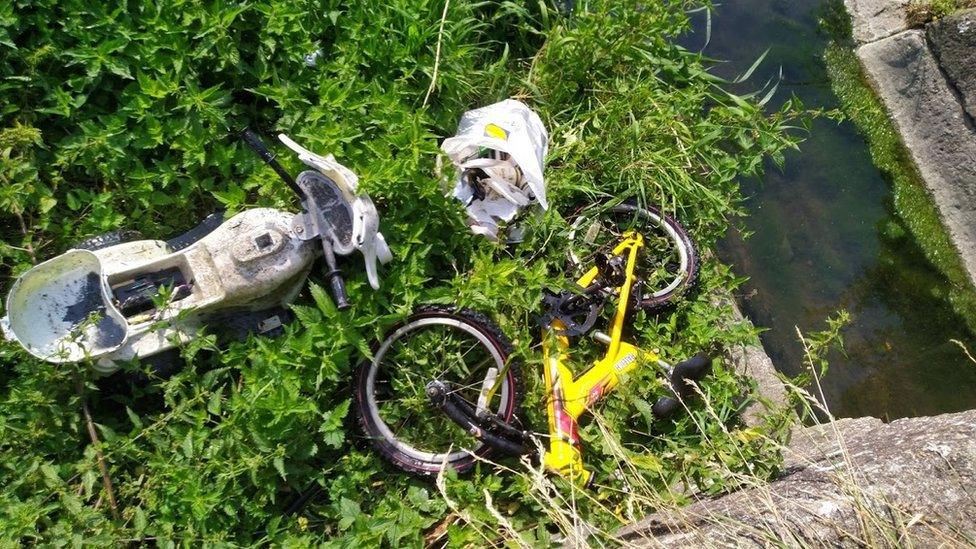
The area was previously littered with rubbish and fly-tipping
The black poplar has been planted 10 metres away from the tiny forest at a nearby river as it likes water.
Jack McCrickard, tree officer for Bristol City Council, said: "The black poplar is the rarest native timber tree and once a massive part of the British countryside.
"This site is a great place to introduce it, black poplars love being near water and they are a really valuable wildlife habitat so it's fantastic to plant such rare trees and see them grow.
"It will be exciting to see how the tiny forest approach grows as it is so different to our usual planting method."
According to the Forestry Commission, black poplar is the most endangered native timber tree in Britain.
They are prone to disease and grow best in boggy conditions, near ditches and floodplains.
Related topics
- Published15 May 2020

- Published10 March 2020
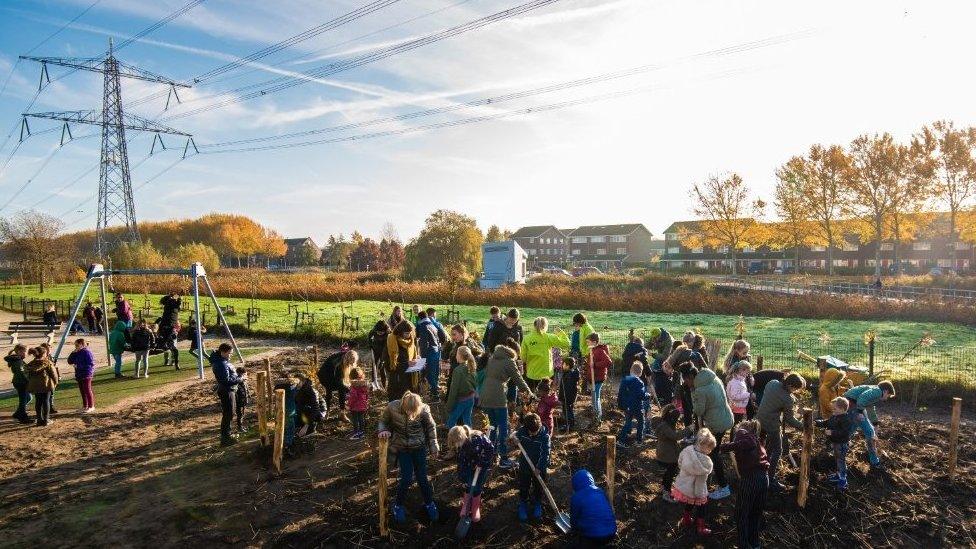
- Published17 March 2020
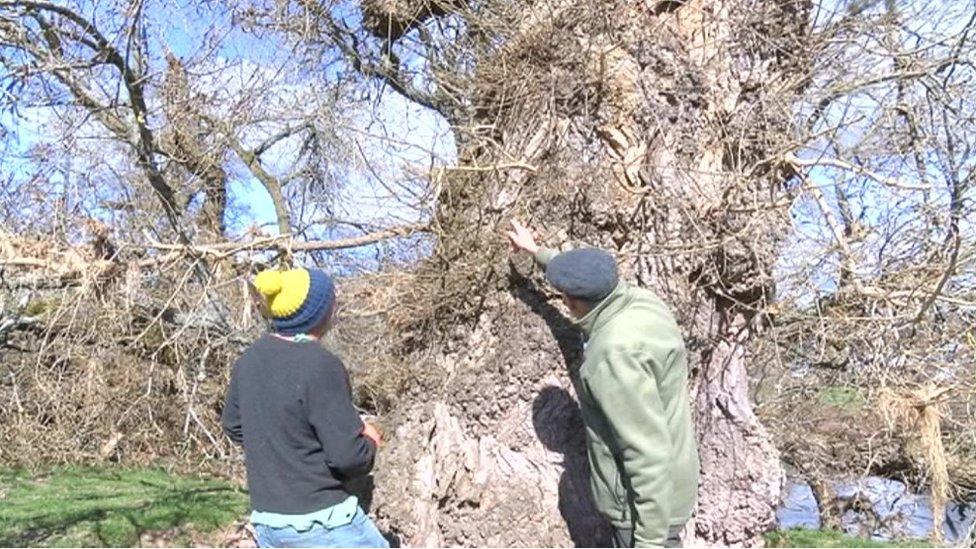
- Published26 March 2013
